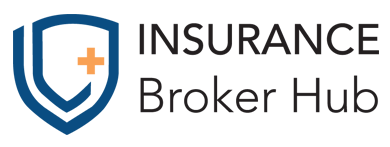Open Enrollment is just a few short weeks away, and for those who have never had to enroll in health insurance from anyone besides their employer, this may be uncharted territory. Health insurance is vital, and is there to protect you from unbearable debt in the event you get sick or are injured.
Remember, with only 45 days to apply for health insurance coverage, Open Enrollment is the only time you can apply for a Healthcare.gov insurance outside of special enrollment periods.
But often, employer-sponsored insurance is easy—or at least easier than going it alone. Often, HR departments spend hours working with their own partners to choose a plan or group of plans tailored to employees based on needs and costs. But with unemployment numbers still elevated as a result of lockdowns, this may not be an option for millions of individuals.
In turn, many will be enrolling in health insurance through the federal or state marketplaces for the first time this year.
Whether this is your first time or you are looking to discuss plans that provide a lower premium (monthly cost) or deductible (money you pay before insurer covers you), it may be helpful to speak with someone who can make your life easier.
Today, we’ll look at the basic goals of each and provide guidance on who you should work with to choose insurance.
Programs from the Government: Call Centers, Navigators, Application Counselors
As you approach or progress through your enrollment, you will have a few options available from the government to help you.
Call Centers and Website
For basic assistance and guidance through the federal exchanges, call centers and healthcare.gov website are in place to answer questions about eligibility and enrollment processes, and to appropriately direct consumers to the applicable Exchange website and other applicable resources.
The website is a bit more detailed, offering comparative information about each qualified health plan (QHP), including the different metal levels, satisfaction and quality ratings, and other transparency information. These provide the essential information you need foe a self-service enrollment.
Health Insurance Navigator
Defined as a company, individual, or nonprofit qualified, and licensed to help consumers, small businesses, and those seeking plans on federal marketplaces. Required to provide information and services in a fair, accurate and impartial manner, these groups often provide marketing for federal marketplaces throughout the year and assistance throughout the open enrollment period.
Duties of a Navigator
Navigators provide assistance in Federal and Federally Facilitated Exchanges, and consist of both individuals and organizations who can help you prepare applications to establish eligibility and enroll in coverage through the Marketplaces and potentially qualify for an insurance affordability programs.
Funded through federal grants, navigators are available for providing outreach and education to raise awareness about the Marketplace, and are prepared to refer consumers to health insurance ombudsman and consumer assistance programs when necessary.
Who Can Be a Navigator?
A broad range of entities are eligible to become Navigators, including community and consumer-focused nonprofits, tribes and tribal organizations, local human service agencies, and agents and brokers. While many agents and brokers are eligible to be navigators, the main difference is that agents and brokers often deliver a wider selection of products including stop loss insurance and off-marketplace plans.
Training can be completed in as little as 5 hours, and ensures navigators have a basic understanding of health coverage and the PPACA, as well as an understanding of how to serve vulnerable populations. Information on navigator training is available here.
Funding for Navigators
Entities and individuals cannot serve as Navigators in the Federally-facilitated Marketplaces without receiving federal grant funding from CMS to perform Navigator duties. You can view grant recipients here.
Certified Application Counselors (CACs)
Certified Application Counselors are trained and able to help consumers seeking health insurance coverage options through a federally facilitated marketplace. While navigators provide information and services in a fair, accurate and impartial manner, CACs are slightly different, as they are required to act in the best interest of the applicants and enrollees assisted.
Duties of a CAC
- Provide information about the range of marketplace eligible options.
- Provide information about insurance affordability programs.
- Assist consumers to apply for coverage in a qualified health plan.
- Facilitate enrollment of eligible individuals in health plans and affordability programs.
Who is Certified?
Requiring annual exchange-approved training on the options available, certification for these employees and volunteers consists of basic training on privacy, conflicts of interest, and the processes for application. Training is similar to that of Navigators, and consists of eight mandatory courses and four optional ones. Like Navigators, CACs have two attempts to score an 80 percent or higher on an exam.
What about State-Based Marketplaces?
State-based Marketplaces may follow guidelines set by the Center for Medicaid Services or establish their own guidelines for the types of organizations they will designate. Rules are set by the state and are generally similar to the federal programs. For more information on the differences in federal and state marketplaces, click here.
Health Insurance Brokers: Independent, Experienced, and Ready to Help
For those looking to cut out the acronyms and receive personalized service, an agent or broker might be able to provide tailored assistance. With more training, experience, and flexibility than those in the navigator and application counselor community, these individuals and companies have been helping clients find insurance long before the ACA.
A Growing Source of Assistance
With roughly 50,000 agents and brokers registered to participate in the federal marketplaces, this group assisted with 3,661,594 Marketplace medical plan enrollments for plan year 2019, 43.6 percent of all enrollments on federal platforms—nearly 2 percent higher than plan year 2018.
Duties and Requirements for Agents and Brokers
As defined by the guidelines, agents and brokers are persons or entities licensed by a state to sell, solicit, or negotiate insurance. To the extent permitted under state law, agents and brokers may register with an FFM to facilitate enrollment and assist consumers with applying for qualified health plans (QHPs) and insurance affordability programs (e.g., premium tax credits and cost-sharing reductions) through the FFMs.
With years of experience helping both businesses and consumers, agents and brokers registered with the FFMs can help consumers:
- Fill out an FFM application
- Determine whether their business is eligible to use a Federally-facilitated SHOP Marketplace
- Understand eligibility for the Small Business Health Care Tax Credit
- Review and compare plans
- Manage employee acceptances and declines of offers for coverage through a Federally-facilitated SHOP
- Enroll in a plan
- Manage and update individual or employee coverage after they’re enrolled; and
- Handle individual or small business renewals and plan changes.
Compliance Requirements for Agents and Brokers
Agents and brokers are held to high standards under the law, and must consistently meet the requirements set in the ACA regarding conduct, disclosures, and information provided. Not only do agents and brokers need to maintain an active license status with the state, they also need to meet stringent requirements for marketplace acceptance.
These organizations, in turn, are held to standards through both independent audits and HHS monitoring programs.
Why Brokers are Different
The main differences between a broker and navigator often fall into licensing and independence.
Licensing: State Approval to Sell Insurance
Before brokers can sell on the marketplace, they have to be licensed by the state to sell insurance. Though licensing requirements vary from state to state, many states require hours of pre-exam training before a broker or agent can apply for state licensing. For example, more stringent states like Colorado require 50 hours of training for agents to sell health insurance, with many requiring 20 depending on the line of coverage for agents. Similarly, brokers will need to pass their own exams for licensing.
Approval to Contract: Stipulations Set by Insurers
Not only do brokers need to meet the needs of the states, they also need to be approved to contract with individual health insurers. This often requires even more training, and will help to reduce any conflict of interest.
Independence: Brokers Connect You with a Variety of Insurers
Agents and brokers have been around for years and often work with several insurance companies. With the freedom to do this, they have a lot of experience in matching coverage needs to rates. Added to this, their experience allows brokers with a detailed understanding of how insurance works, helping them to explain programs in a manner that you can understand.
Able to Buy Off-Exchange Plans
Another key reason brokers make life easier? Their independence means even more flexibility. Whether that’s through an off-exchange plan (often more affordable, but with stipulations) or by providing other value-adding services, brokers and agents are going to set you up with a plan that delivers for you.
Where Can You Find a Broker to Help You with Health Insurance?
If you’re looking for options, freedom, and flexibility as you approach this critical time, you’re not alone. Insurance Broker Hub is here to help you find the right plan at the right price, eliminating the confusion and work that goes into securing health insurance. With no broker fees or increased premiums, Insurance Broker Hub will connect you with a broker ready to deliver for your needs.
We are an independent national broker network with access to every carrier in the industry. Some of our common carriers include AARP, Aetna, Ambetter, Blue Cross Blue Shield, Caresource, Cigna, Humana, Molina Healthcare, Oscar, Securian, Transamerica, UnitedHealthcare and more. Get to know more about how we work and request a free health insurance quote here.


